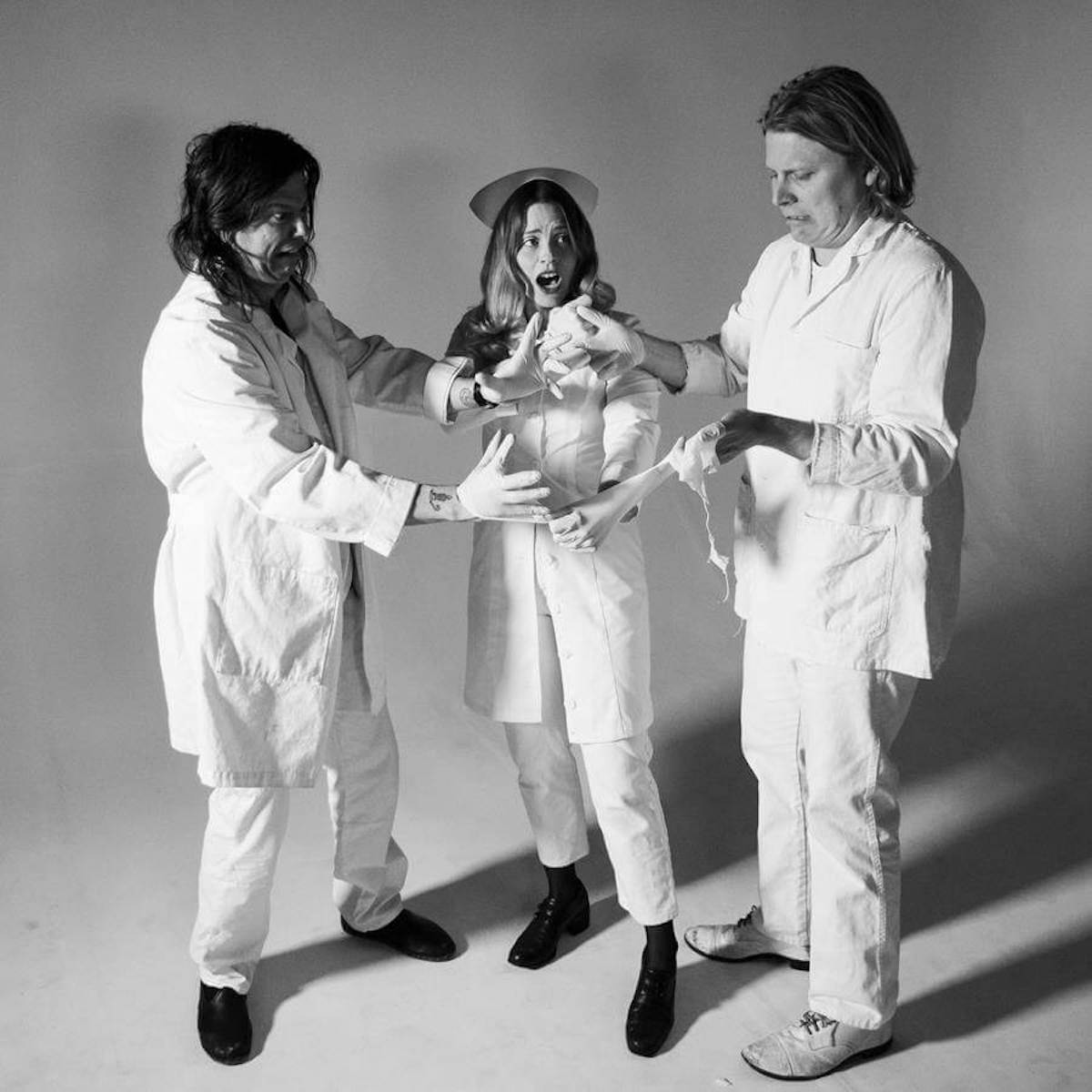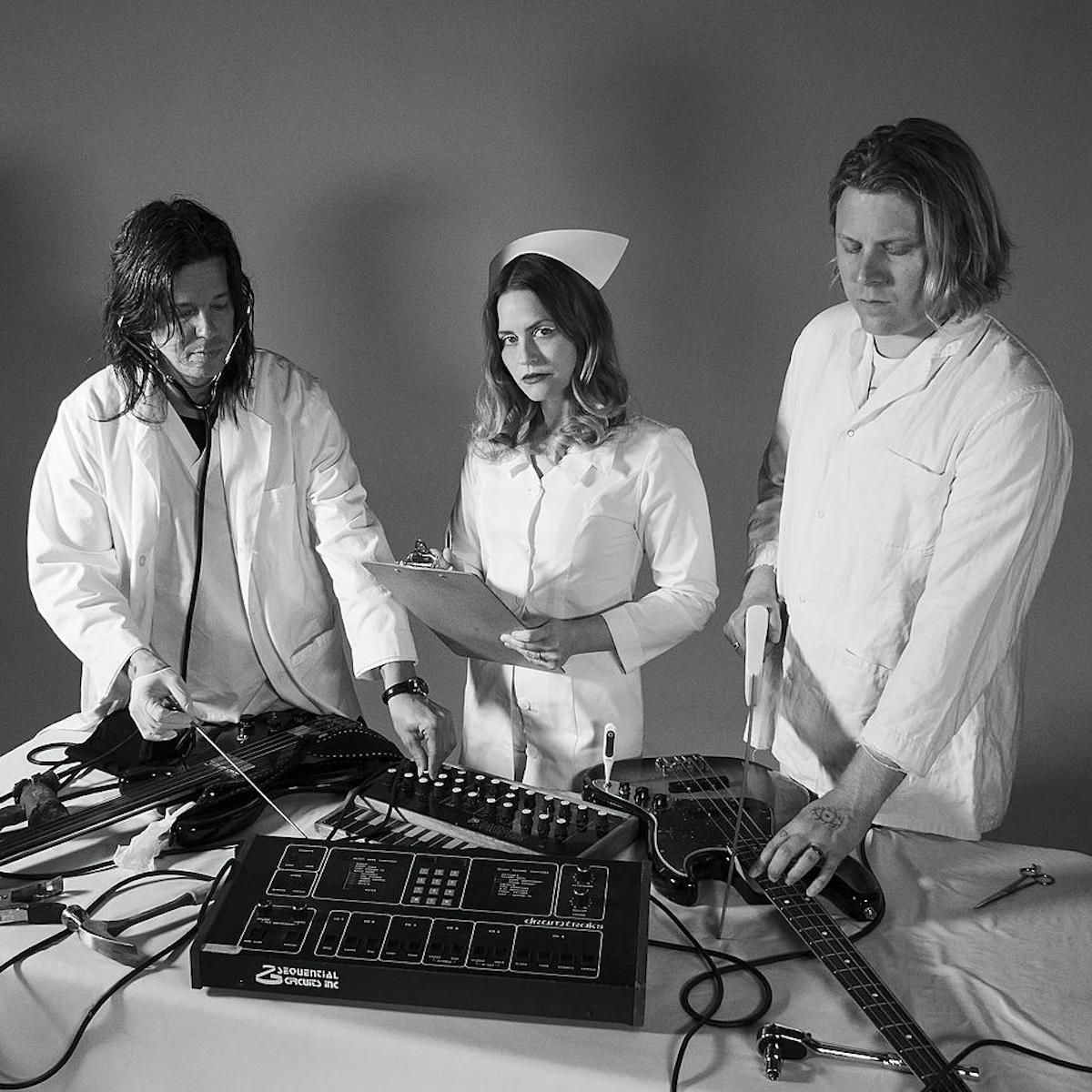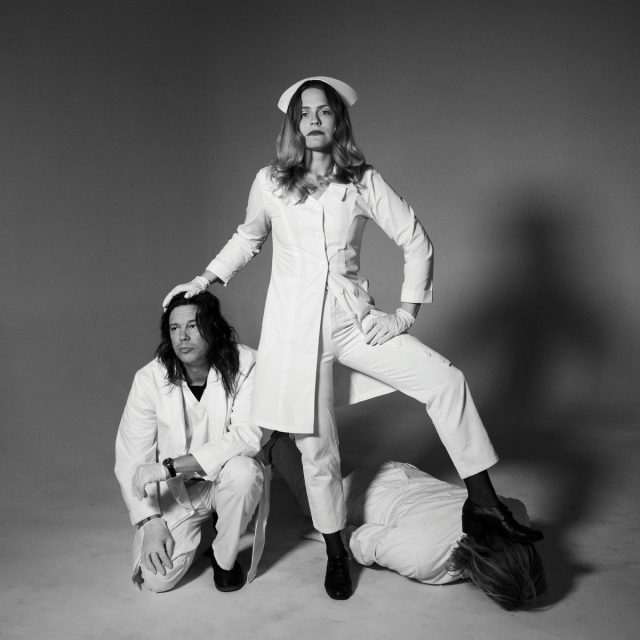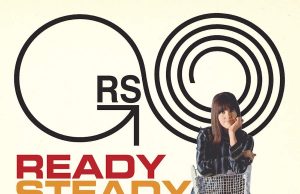THE EDITED PRESS RELEASE: “Step into a sick rhythm. And I mean sickly. Surgery Channel is a constructed world where everything is piercing and pinpointed. Every single word brings confrontation. With an intro as intimate and uncomfortable as this, The C.I.A. make you question what could be happening here … or what they’re after.
Denée Segall (vocals, lyrics) is both haunting and seducing us at once with her voice. Something unhinged might be about to happen and they’re calmly dangling it over your head. Is it the possibility of dismemberment? Revenge? Ty Segall (bass, percussion, backup vocals) and Emmett Kelly (bass, synth, backup vocals) have painted a jarring and dissonant landscape behind Denée’s story. Their basses could easily be swapped for bone drills and you might not be able to tell the difference.
Emmett’s modular synth envisions an environment reminiscent of the instrument itself, a mess of wires and pulsing red lights. Ty’s subtle use of electronic and analog percussion fluctuates between the sound of a metal tray hitting the floor (The Wait), and the swish of an ultrasound scan (Bubble). At times, it projects the feeling of being probed and investigated. You could assume this reality has been lived by those at The C.I.A., though most listeners could only fear it. So … just how little of this portrayal is solely a work of imagination?

There is something about Surgery Channel that is sterile and covered in dirt at the same time. Maybe it’s the feeling of simultaneous anger and defeat. Maybe it’s what comes after. Or maybe it’s about the ever-so-brief silent spaces between notes and words. Rhythm would be nothing without empty space. Words are rhythm at The C.I.A.: “Vicious visage / Internal monologue / Blink and stare / The metal and the glare / Intentions negating / The ego ascertaining / A pause / A cue / A push to make a move” are the lyrics to Better.
There’s nothing wishy-washy about The C.I.A. or the way they sound. It’s all about precision and aim But really, it’s a warning … amplified by the suspense of tick-tocking drum machine beats that resemble a hospital room in Over: “It’s a slight incision / Never really knowing / If we’re dead or living.”
Dissection is but just one of the issues here. Bubble is a different story. A story of anxious desire. We will be consumed by what we must consume. Restraint backfires and drives a person to madness. Or maybe that’s just what they want you to think. It’s one of those tracks that feels as though Denée is whispering directly in your ear: “She needed something to eat / She wanted to dine / But it was never enough / She was feeding all the time / She needed someone to see / To look at her and to vie / She puts her fist in her mouth / Tells you she’s losing her mind.”

Both Surgery Channel and The C.I.A.’s first self-titled record are ripe with straightforward conviction. However this most recent instalment reveals a new side of their personality. Now The C.I.A. are communicating from an electrified, pulsating, metallic playpen that wants you to strut. Impersonator beckons a new groove, with call and response bass hooks that resemble a sequenced dance track and background vocals that invite a very steamy dynamic. The high-energy You Can Be Here is for those who can move fast, while Bubble is for those who want to sway in sultry slow motion. Surgery Channel shows punks a new way to move while remaining loyal to the traditions of catharsis and social commentary.
This record is an astute observation and blunt critique. Both inward and outward. It is an exploration into how harshly intimate that process can be. It was written in 2021 by Denée Segall, Ty Segall and Emmett Kelly. It was recorded at Harmonizer Studios and mixed at Golden Beat by Mike Kriebel.”










































